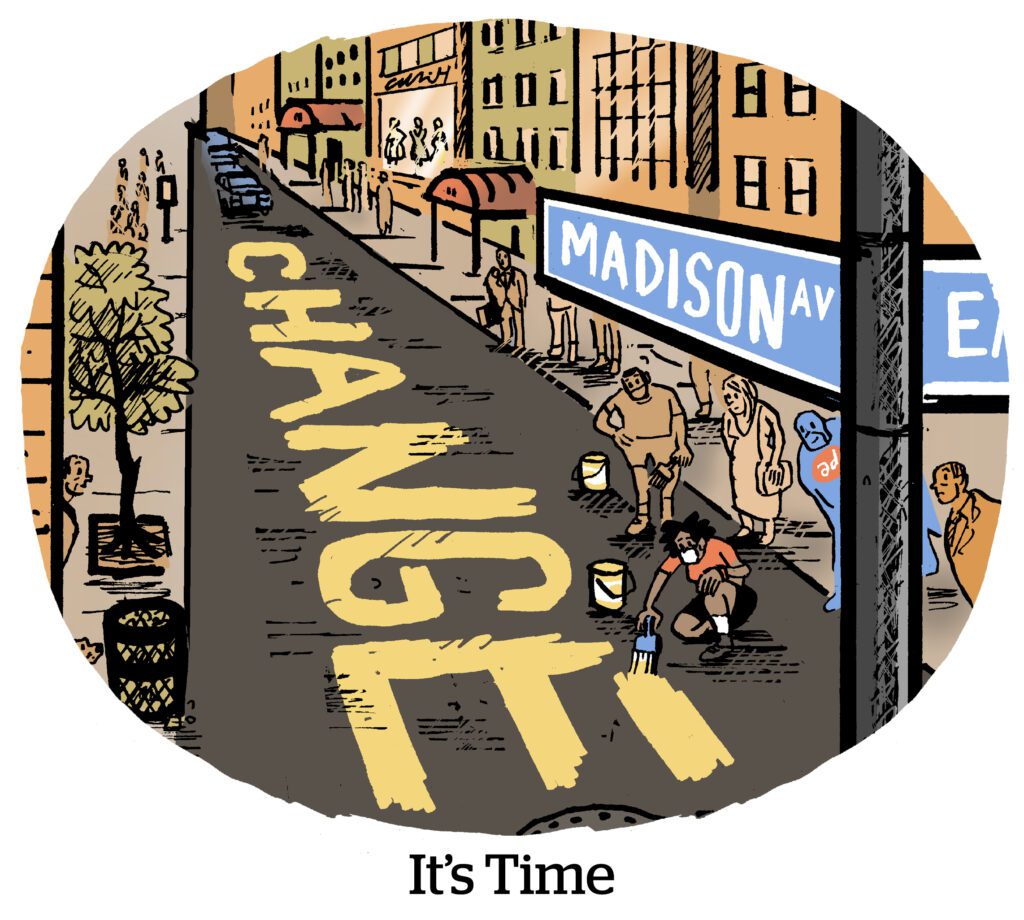Here’s today’s AdExchanger.com news round-up… Want it by email? Sign up here.
Let The Search Begin
The long-dormant search category is rousing.
Microsoft recently invested $10 billion in OpenAI, maker of machine learning content creation software DALL-E (for images) and ChatGPT (for text responses), with plans to test ChatGPT’s returns for Bing searches.
Meanwhile, Amazon keeps on chipping away at Google’s search ad dominance, TikTok has its own ambitious search play, the founder of Mozilla hopes to recapture lightning in a bottle with Brave, former Googlers launched an ad-free search engine last year, there’s newbie AI-infused search engine You.com looking for its slice of the pie, and Yahoo is even unironically angling to reenter the search game.
But Google isn’t exactly slipping. Google’s search challengers are for the most part content to fight for scraps because even a small sliver of search engine market share is worth as much if not more than a small nation’s GDP.
Search engines are also incredibly resilient.
During Alphabet’s last earnings report in October, CEO Sundar Pichai, who joined Google in 2004, fielded a question from Mark Mahaney of Evercore about how the current economic downturn compares to previous down cycles.
Pichai acknowledged the uncertainty, but his real point was this: Google knows firsthand that a solid search business is strong enough to endure recessions and even mass changes to online behavior.
Batting Eyelashes
There’s major drama going down in the TikTok beauty world after an influencer named Mikayla Nogueira got called out by viewers for a post promoting a L’Oréal mascara product while appearing to use fake eyelashes.
“Look at the length,” she says in the video. “Do you see that? I am speechless.”
If Nogueira did wear false lashes, that bit of deceit on its own could be a violation of truth-in-advertising laws, which are enforced by the FTC, according to a tweet by social media and ecommerce business attorney Robert Freund.
But there’s another problem: Nogueira’s post only has a #lorealpartner tag and a brief, blurry ad disclosure that says “L’Oréal Paris Partner.” Freund says this could be inadequate if the post was paid for by the brand.
The incident demonstrates how social content and traditional media truth-in-advertising standards awkwardly collide. Brands, for instance, often use eyelash extensions in their commercials – as Nogueira herself once reported when she was first building up her cosmetics influencer cred, The Cut reports. That perfect-looking Big Mac in a commercial or on billboard has a spray tan, too.
Hometown Heroes (Down Under)
Beginning in mid-2024, Australia will roll out Australian content quotas for international streaming platforms, such as Netflix, Disney and Amazon, The Drum reports.
The policy is part of Revive, Australia’s five-year plan to reboot the country’s arts, entertainment and culture scenes.
Australian TV networks already abide by homegrown content quotas and have argued that global conglomerates and streamers should ensure 20% of their content is local, too.
The viewing habits of Australian audiences shifted during the COVID-19 pandemic to favor streaming platforms (whose didn’t?), elbowing out homegrown content.
Over on the other side of the world, the Canadian government is debating a bill that would enforce similar requirements on all kinds of content platforms, including big broadcasters, Netflix, Spotify and YouTube.
And the same territorial trend is playing out in manufacturing, not just media production. Apple and Google, among others, have opened factories in India because of rules requiring that companies operate in the country in order to sell there.
But Wait, There’s More!
Apple’s ad targeting mechanics revealed in a recent French privacy case. [Mobile Dev Memo] And related in AdExchanger: The CNIL is fining tech companies left and right over consent issues.
Some businesses are figuring out how to harness ChatGPT-like AI to improve online chat functions – but execs are wary of errors. [WSJ]
Why does it feel like Amazon is making itself worse? [New York Mag]
The open programmatic market is in a tough spot. [Digiday]
Chrome’s FLEDGE protocol is the only Privacy Sandbox proposal that’s gained any traction. [Adweek]
You’re Hired!
DocuSign expands its leadership team with newly created roles across strategy and marketing, including Robert Chatwani as president and general manager for growth. [release]











